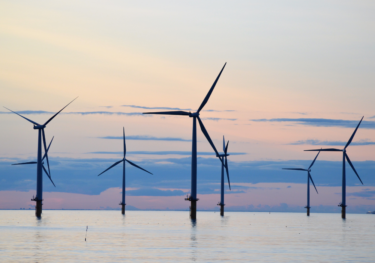Recent Release | 16 Aug 2023
Funding the Future: The UK’s energy transition in a global context

Industry Consulting Team
Oxford Economics

Substantial investment is needed to fund the transition to a net zero economy. There has been a recent flurry of new, large scale investment incentive schemes for clean technologies around the world. These include the $369bn Inflation Reduction Act in the United States and the European Union’s €270bn REPower EU initiative. Multi-billion dollar incentives in other markets including Japan, China, and India make the global competition for clean investments even more intense.
The UK has significant strengths as it faces the challenges of decarbonisation. These include its world-leading universities and financial services, its early success in offshore wind and established industries (such as in the digital and oil and gas sectors) that can support clean growth. However, it risks falling behind in years to come as many countries—helped by generous incentive schemes—are increasing their clean technology capacity at a faster rate than the UK.
The paper argues that as a result of increasing incentives for clean technology investment in other jurisdictions, future investment in UK clean technology is looking increasingly under threat. In the face of stiff competition, the UK must act now to attract future investment.
To download the report, please complete the form below.
The expert behind the research
Our Industry Consulting team are among the world’s leading analysts of a variety of industrial sectors. They combine their expert insight with our state-of-the-art economic models and tools to answer the crucial questions facing our clients.

Emily Gladstone
Senior Economist, Industry

Andy Logan
Director of Industry Consulting, Economic Impact
Read the report
Complete the form below to download the report
Tags:
Recent Industry reports

Oxford Economics enhances its Commodity Price Forecasts coverage
Oxford Economics expands Commodity Price Forecasts service to include battery metals, agricultural commodities and plastics.
Find Out More
The socio-economic impact of TikTok in Australia
This report provides the results of our economic modelling of TikTok’s economic contribution to the Australian economy, as well as the findings of survey research into TikTok’s users and Australian businesses. It looks at the real world impacts users report as well as the diversity of TikTok’s online communities.
Find Out More
Why we believe the industry cycle in the Eurozone is finally turning
Even though incoming hard data on eurozone industry is still downbeat, leading indicators suggest that we're at a turning point. We expect favourable cyclical and structural tailwinds will now take over, and industry output to accelerate through this year to 2% y/y growth by Q4.
Find Out More
China’s robust industrial performance raises trade tensions
Industrial production in China is forecast to post growth of 5% in 2024, for the second year in a row. Its performance will outstrip the United States and an anaemic expansion in Europe, and raises the prospect of a renewed tensions between East and West.
Find Out More